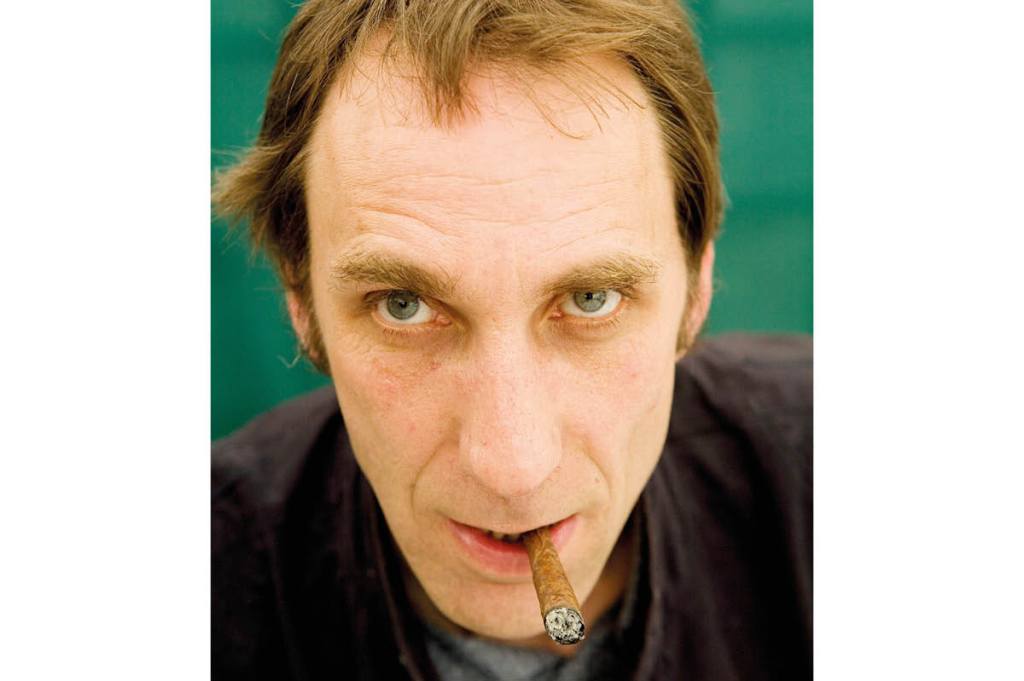Will Self’s recent, exceptional fictional trilogy, comprising Umbrella, Shark and Phone, displays a deep preoccupation with the ways that time, memory, family, psychosis and history interact. The novels are complex, multigenerational narratives, composed in a late modernist style as engaging as it is experimental. Formal playfulness, with the prose switching between its characters’ consciousnesses, sometimes even midsentence, is married to solidly satisfying plots.
Having already excavated his own life in a memoir, Will, Self has now turned to his mother in a novel, Elaine. Self has written about Elaine Rosenbloom before (in the short story “North London Book of the Dead”); she also appears as the narrator, Lily Bloom, in How the Dead Live. But this project voyages far further into the oedipal ocean, still touching on Self’s familiar themes. The book’s concerns include the nature of novel-writing, mid-century American mores, and the fracturing of the nuclear family, with the Cold War (and its threat of nuclear disaster) simmering in the background.
Elaine is, formally speaking, relatively conventional, and experimentation is generally shunned (though the action takes place largely inside Elaine’s mind as she recollects events). Occasional italic phrases are, I surmise, lifted directly from forty years’ worth of Self’s mother’s actual diaries, on which the novel is based. Otherwise, we follow a straightforward chronological line, surging from her early life into a fictional future that might have treated Elaine very differently. We are in the 1950s, not long after the atomic explosions of Hiroshima and Nagasaki, to which Elaine’s miserly academic husband John Hancock has a tangential relationship; meanwhile, the sexual looseness and apparent liberation of the 1960s is foreshadowed in indiscriminate “necking” between married couples at faculty parties, with predictably shattering results. There are hints here of Edward Albee’s Who’s Afraid of Virginia Woolf?, that explosive play about intellectuals falling apart.
The setting is Ithaca, New York (the Odyssean subtext of homecoming an ironic one for Elaine, since she is far from feeling at home), and the Cornell University campus. Its dreary streets and confined horizons are finely evoked, symbolizing lives that, despite being neither here nor there, yearn to be the centerpiece of something more. The pettiness of campus politics is satirized: gossip and insinuation are rampant, weapons in a war of preferment whose stakes, compared to larger issues, seem woefully small.
For a writer who has been so concerned with the nature of masculinity, it’s an interesting move for Self to dive into the feminine. This he does with immense empathy and success. Elaine’s diaries are a springboard, bouncing us directly into the depths of her psyche. The reader is immediately, fully immersed in her mind, even as she performs the most mundane of tasks: the novel opens as she stands in front of the mailbox on Hemlock Street, having something approaching a nervous breakdown. Elaine is poisoned by suburban life: “Is this it? Is this fucking it?!” she thinks desperately, staring at the little house she shares with John and their son, Billy. It is an unprepossessing place where domestic tragedy can, and will, play out.
Self fashions a portrait, as intimate as it is intriguing, of Elaine as a clever, highly literate, troubled woman trapped within a series of metaphorical cages. The first is made up of her own neuroses, which sometimes pin her to the doorstep, torn as she is between agora- and claustrophobia. There are the cages of society, both small and large: her disastrous, toxic marriage and the concomitant poverty of life as a wife on campus as well as the prejudiced attitudes toward women and Jews in general, even among the apparently liberal communities that make up Elaine’s milieu.
Cages, appropriately, are a motif throughout: from the badgers that Elaine remembers seeing in a zoo, to her house (a “wooden cell”), to the advice about writing that her Ithaca neighbor Vladimir Nabokov (appearing in a memorable cameo) dispenses. The great writer tells her that a gorilla, given crayons, drew the bars of its own prison. (As ever, Self, like Nabokov, loves his wordplay, delighting in the resonance of sounds like “cursed spit and spat curses,” and finding patterns and puns everywhere.)
Elaine was a writer, and the novel documents her frustrations as an unpublished author, whose writing is “nonviable… as some obstetrician might say of an embryo.” Her diarizing is almost compulsive, and in it we can see hints of Self’s own drive to compose, as well as the foundations of a desire to understand and analyze. She is compulsive as well in her destruction of the journal volumes, which she occasionally throws into the furnace. She churns out advertising copy for a local business; meanwhile, John receives grants and promotions for dull, critical work on a blind, dead poet — John Milton. As Milton’s daughters transcribed his poetry, and Mrs. Nabokov types Vladimir’s fiction, so Elaine dutifully types up her husband’s work, a mere amanuensis in a long line of drudging females, when her voice, acerbic and witty, longs for a literary outlet.
The encounter with the Nabokovs, at a campus party, is emblematic of Elaine’s entire predicament. Mrs. Nabokov dismisses her: “The idea of Nabokov giving anyone advice concerning such matters is wholly ridiculous — he writes, you see, as a spider spins its web or an ant builds its nest.” Just as Vladimir utters his gnomic piece about the gorilla, and it seems as if Elaine might achieve some kind of insight or revelation, John drags her away to talk to a colleague who might help with his promotion. Elaine is an outsider, constantly misunderstood, ignored, abused and pulled about. She’s no saint herself, though — determinedly conducting affairs while John was in the army, and even when he’s back at home.
Elaine is virtually always on the psychological brink, just as she hovers on her own doorstep. Although Freud is not mentioned in the text, his name is evident in that of Elaine’s psychiatrist, Dr. Freudenberg, (whose advice she generally disdains), and the mother-son relationship is very much at the core of the novel’s emotional texture. It is unclear whether Billy is Will himself (in real life, Self was born later, in the United Kingdom); in a sense Billy is a symbolic child, part of a picture of the frustrations and passions of all mothers and sons.
Elaine sometimes fantasizes about killing Billy, as she does about killing herself; she also finds herself locked into moments of almost unbearable sweetness with him. She takes pleasure in teaching him to read and write, initiating him into the family business, as it were, by tracing letters with his fingers on the upholstery of her sofa. She can control him, where she can’t her husband — for now, at least. Whether the bookish Billy can escape his family’s psychodrama is a moot point, an ominous undertow throughout.
Elaine’s Jewishness, thus her otherness, is a major aspect of the book. She rejects her father, a self-made man who relishes the vulgar attributes of money and status, and conforms, she thinks, to antisemitic stereotypes. And yet she herself longs for more material success. Her heightened sensitivity to her Jewishness contributes to her anti-racism: where her parents were overtly racist to their black nurse, Prudence, referring to her only as “the shvartze,” Elaine finds herself screaming in rage at Billy when he covers himself in mud in a crude approximation of blackface.
Her husband is also hiding his otherness: Hancock is a pseudonym, and his real name is Johann Schitz, discarded both for its Germanic origin and its whiff of the scatological. “I am not what I seem,” says John to Elaine, in self-conscious allusion to Iago’s similar claim in Othello, and indeed, almost everyone in Elaine is wearing a mask. Only Elaine finds hers slipping, which renders her almost incapable of functioning in a society that doesn’t seem to know what to do with her.
The novel’s crisis involves the result of all that necking at faculty parties: an affair Elaine conducts with a handsome, rich professor, who uses her not only for sex but to annoy his wife, who is herself having an affair with John. Sexual liberation, as almost always, only means liberation for men. Elaine ends the novel as trapped as when it began, casting her diaries into the flames.
If it is one of the purposes of fiction to imagine another person’s unknowable consciousness — and it is certainly Self’s grand project to try — he has here achieved that rarest of things. He has shown that understanding is possible, across generations and across time. It is another chapter in Self’s twenty-first century opus: a reckoning with his creator and an examination of the agony of maternal influence, at the same time that it is an immensely empathetic recreation of her interior complexity. Self is not so much an Oedipus here, but more an Orpheus, setting her life to a sort of music.
This article was originally published in The Spectator’s October 2024 World edition.


























Leave a Reply